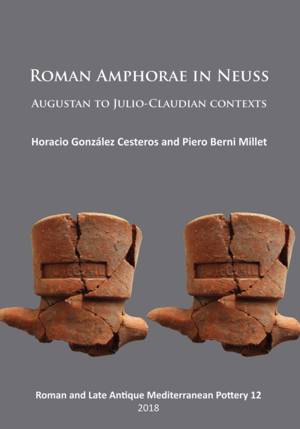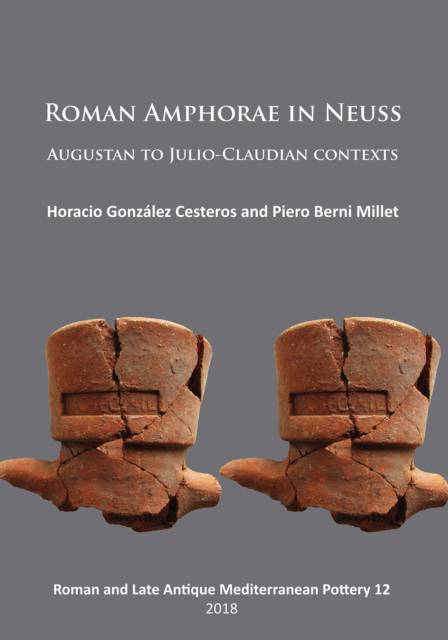
- Retrait gratuit dans votre magasin Club
- 7.000.000 titres dans notre catalogue
- Payer en toute sécurité
- Toujours un magasin près de chez vous
- Retrait gratuit dans votre magasin Club
- 7.000.000 titres dans notre catalogue
- Payer en toute sécurité
- Toujours un magasin près de chez vous
Roman Amphorae in Neuss
Augustan to Julio-Claudian Contexts
47,45 €
+ 94 points
Description
The occupation of the territories on both sides of the Rhine was an enormous logistical challenge for the Roman military administration. In the last two decades of the first century BC, several territories were conquered or partially occupied by the Roman legions, establishing a large number of military camps around the Rhine and its important eastern tributaries. Most of these camps were occupied for short periods, depending on the march of the legions and the course of military events. In a location with good natural defences and communications with the Belgian hinterland, Neuss was one of the earliest points on the Rhine where the Roman military was positioned. The area was occupied-with some intervals-from 16 BC onwards by different legions as well as smaller units. This book provides an in-depth study of one of the most important archaeological artefacts for understanding the military supply along the German frontier: the amphorae. Deliveries arrived at the different military camps established in the intersection between Erf and Rhine from 16 BC until the Claudian principate. The study of this material is essential not only for understanding Neuss, but for further understanding of the whole Rhine and the logistics of the Roman army and its supply from very distant areas.
Spécifications
Parties prenantes
- Editeur:
Contenu
- Nombre de pages :
- 152
- Langue:
- Anglais
- Collection :
Caractéristiques
- EAN:
- 9781789690521
- Date de parution :
- 21-12-18
- Format:
- Livre broché
- Format numérique:
- Trade paperback (VS)
- Dimensions :
- 208 mm x 295 mm
- Poids :
- 476 g






